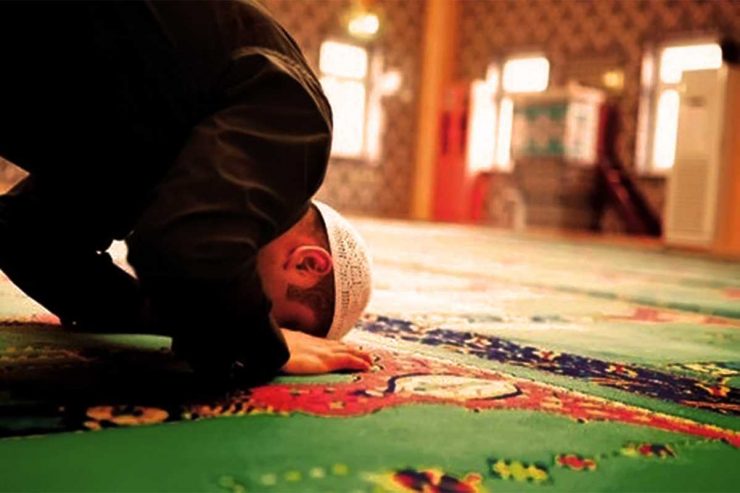By A. Zeynep Donmez – Ozlem Ata Translated from Turkish by Yilmaz Kaso
A chapter from the book ‘Friday of the Youth” Sydney, AUSTRALIA
“Read in its context that which has been revealed to you of the Book and offer the prayer duly and regularly. Surely the prayer keeps (one) away from indecency and evil, and certainly remembrance of Allah (His book) is the most important (thing). Allah knows what you do.” (Al-Ankaboot 29/45)
“The key to heaven is prayer (salat), and the key to prayer (salat) is ablution.” (Al Tirmidhi, Taharat, 3)
Dear youth,
If you receive an e-mail from a trustable account but in a language which you do not know, what will you do?
If you know the person who sent you the e-mail, you would probably translate it using a translator web site, but you wouldn’t read it again and again without understanding, would you?
Likewise, we must read the Book sent by Allah in our native language to understand His message. Here is why:
Every person from childhood to adolescence notices that everything around him is the product of the excellent creation of Allah (S.W.T.) and that these are the indicators of the existence and oneness of Allah (S.W.T.). All the creations of Allah are in harmony with the verses which Allah revealed. In Surah Fussilat verse 53 Allah (S.W.T.) said:
“We will show them (people) Our signs both in their surroundings and within themselves so that it will become clear to them that it (the Quran) is the truth. Is it not enough that your Master is a witness to all things?”
To be able to see the harmony between the information in Quranic verses and the creation of Allah, it is important to read the meaning of the Quran in our language, besides its original Arabic form. If we do not understand its meaning, the Quran cannot be a source of information for us. Every verse in the Quran is a message sent to us which we should read in the language we understand. As we mentioned at the beginning of our speech, God commands in Surah Al-Ankaboot verse 45: “Read in its context that which has been revealed to you of the Book and offer the prayer duly and regularly.”
“Reading” is defined as “to look at so as to understand the meaning of (something)”. To read a verse in its context, we must understand it, as well as learning the verses related to its meaning. So, we can reach a sound conclusion about its real meaning.
Dear youth,
Did you think about what is meant by the expression “offer the prayer duly and regularly”?
Of course, it covers performing the five fard prayers at their correct times. But it is not limited to this. Since prayer “keeps (one) away from indecency and evil”, there should be some other factors that prayers (salah) cause us to think about and change within ourselves. What will keep us away from indecency and evil must be the advice, commands, and invocations (dua) that we recite during the prayer, and we can stay away from evil only if we offer the prayer by thinking about their meanings. The verse also continues as “the remembrance of Allah (His book) is the most important (thing).” So, during the prayers, the most important thing is the constant remembrance and comprehension of the meanings of the verses, that is, remembering the commands and prohibitions of Allah. This is the only way prayer would keep you away from indecency and evil. Furthermore, to perform prayers properly there are rules to follow before and during the prayer.
Dear youth,
Praying is a very easy and relaxing worship in our daily life. Unfortunately, many young people see prayers as hardship and inconvenience. Actually, you will see how easy it is to pray if you use the conveniences which Allah (S.W.T.) taught us regarding the ablution (wudu) and prayer.
Today, in books of Islamic jurisprudence, the Example (Sunnah) of Prophet Muhammad (PBUH) about performing wudu (ablution) is taught, and you probably perform the wudu by observing all of its details. However, the compulsory (fard) articles of wudu are four. They are explained in Surah Al-Maidah verse 6. These are, washing your face and arms up to your elbows, and rubbing your head and your feet up to your ankle with wet hands (applying Masah). Applying Masah over your headscarf (hijab), your socks, or your shoes are very convenient for performing wudu outside. If there is the opportunity, we perform wudu according to the sunnah, but when there is little time, we can perform only the compulsory articles of wudu. This will take less than a minute.
Dear youth,
As you know there are two kinds of prayers: fard (compulsory) and sunnah. The sunnah prayers are Nawafil (optional) prayers. Performing these prayers is a very virtuous and beneficial deed but skipping them is not a sin. For example, if you cannot perform the 10 rak’ahs of midday (Dhuhr) prayer together with its sunnah during the 5 minutes of break at school, you can pray only the 4 rak’ahs of fard.
Performing the fard prayers is compulsory and they must be performed within the time period they are prescribed. They cannot be delayed to another time or neglected, except in the case of forgetting or falling asleep. The Prophet Muhammad (PBUH) could not perform his morning (Fajr) prayer once because he had fallen asleep, and the late afternoon (Asr) prayer at another time because he forgot it during the war. What he said about these situations is as follows:
“Be mindful! I am an example for you.” He then continued saying, “Be mindful, missing the prayer because of sleeping is not a fault. The person who is faulty is the one who does not perform his/her prayer within its time until the next prayer time is reached. From now on, whoever sleeps in, when they wake up, let them perform their missing prayer. But the next day they should perform that prayer on time.” (Muslim, Masajid, 311 (681))
Another convenience which The Prophet Muhammad (PBUH) used was joining two prayers together. Of course, this action takes its reference from the Quran. In the Quran, the end of Dhuhr prayer and the beginning of Asr prayer are not strictly determined. Similarly, the end of the sunset (Maghrib) prayer and the beginning of the night-time (Isha) prayer is not determined, either. For this reason, Dhuhr and Asr prayers can be joined together and performed during any time between the beginning of Dhuhr and the end of Asr prayers. Similarly, Maghrib and Isha prayers can also be joined together. So, in case you have an exam, a long period at school, or a possibility of missing the prayer, you may join those prayers. Also, according to Surah Al Baqarah verse 239, if there is a possibility of missing a prayer, you may perform your prayer by walking or in a vehicle while standing up or sitting down.
All these conveniences are never underestimating the Example of The Prophet Muhammad (PBUH), but rather, within the limitations that Allah set, practicing the following principle of Rasullullah: “Make things easy and do not make them difficult, cheer the people up by conveying glad tidings to them and do not repulse (them)” (Bukhari, Ahkam 22). When you consider the fact that prayers are to be practiced in any condition and within its period, we should appreciate the conveniences which Allah permitted for us.
Dear youth,
Let us try our best to offer our prayer duly and regularly, and when necessary let us use the conveniences which are permitted for us. Let us not forget that the key to heaven is salat and the key to salat is ablution.
So, we hope that we will be among the saved ones.








Add comment